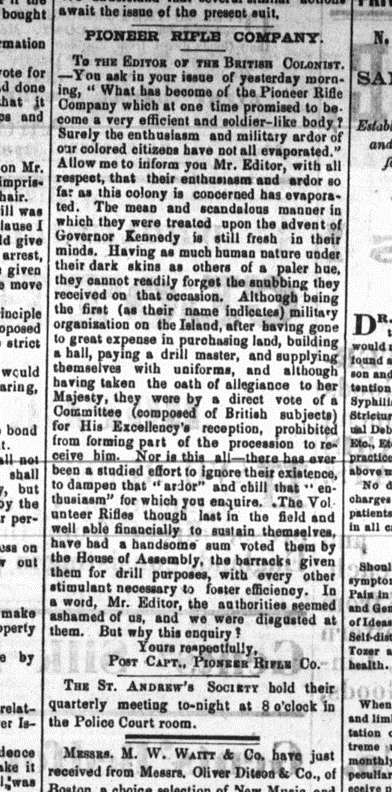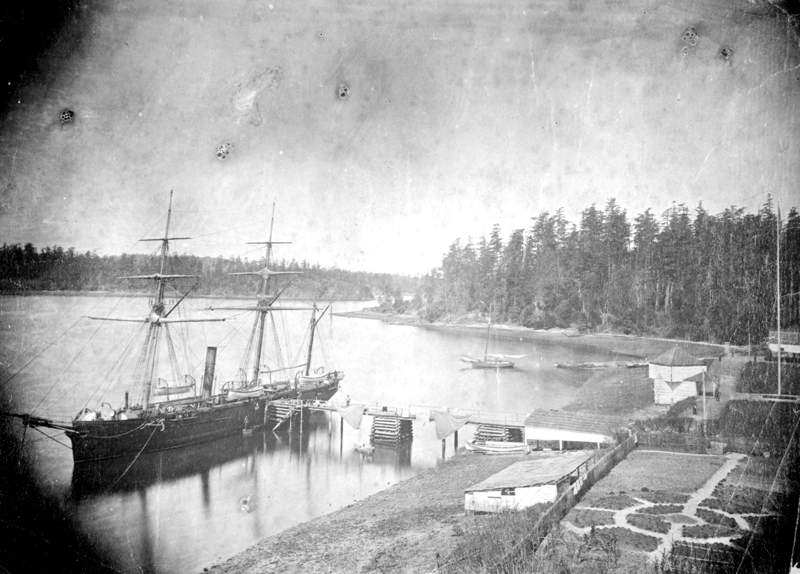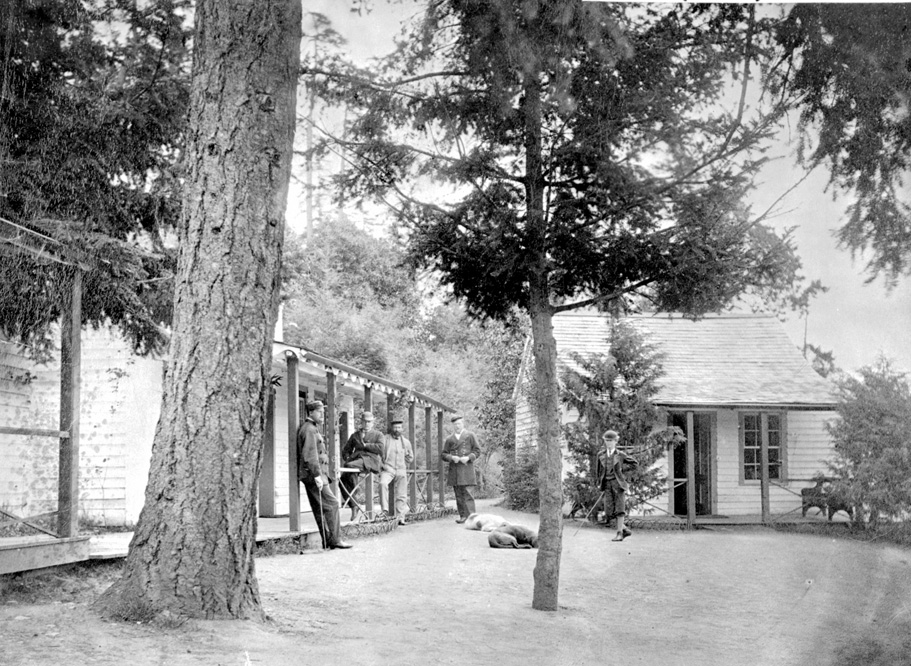The Oregon Treaty was signed on June 15, 1846, and originated out of a tense series of sovereignty claims from growing numbers of Americans colonizing a shared territory with the Hudson's Bay Company, then known as the Oregon Territory. Neither the British nor the Americans wanted to engage in war over the border, so a series of diplomatic negations and subsequent concessions led to the formalizing of the boundary with the Oregon Treaty. The new border extended west along the 49th parallel, across the Rocky Mountains, through the Gulf Islands, and around Vancouver Island's southern tip. The treaty formally ceded the territory north of that border to Britain and everything below to the United States.
After the Oregon Treaty, the coastal boundary off southern Vancouver Island remained in dispute for several more decades in a series of events known as "the Pig War." Both the U.S. and Britain claimed sovereignty over the San Juan Islands, which were largely ignored in the drawing of the Oregon Treaty. The islands were large but sparsely inhabited. However, as more British and American settlers arrived on the islands, conflict over which country ruled began to emerge.
What started this dispute was when a pig owned by the Hudson's Bay Company got loose from its pen and was shot by an American farmer for eating his crops. This minor event led U.S. General William Harney to send over 60 soldiers to the island to assert American sovereignty. When the Governor of Vancouver Island, James Douglas, found out, he sent British Warships to counter the American presence. While Britain and the U.S. had little interest in beginning a war over the islands, both had soldiers occupying the area until 1872. To end the stalemate, German Emperor Wilhelm I was tasked with arbitrating the conflict, and he concluded that the San Juan Islands belonged to the U.S. Since this decision in 1872, B.C.'s coastal territory has largely remained the same.
When denied membership in Victoria's Volunteer Fire Department, men from Victoria's Black community formed the Pioneer Rifle Corps, a militia that prepared for war with the U.S. during the San Juan Islands crisis. Despite being the senior military unit in the colony, they were not allowed to march at Douglas' retirement or the installation of his successor, Arthur Kennedy. Believing that they would never receive the respect they deserved, the group disbanded. On May 9, 1865, the captain of the Pioneer Rifle Corps wrote to the Colonist, saying that "having as much human nature under their dark skins as others of a paler hue, they cannot forget the snubbing they received on that occasion."



